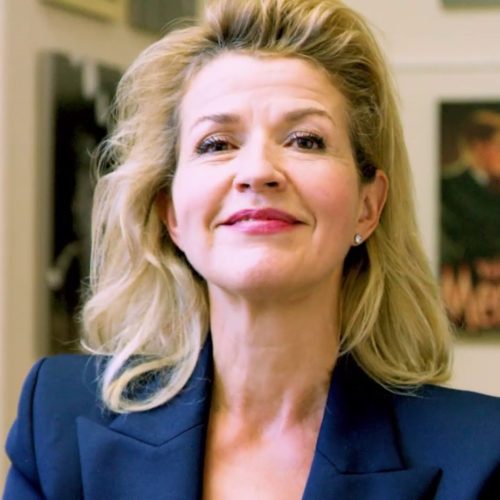Live recording from Florence, 1952.
Courtesy Mikhail Kaykov
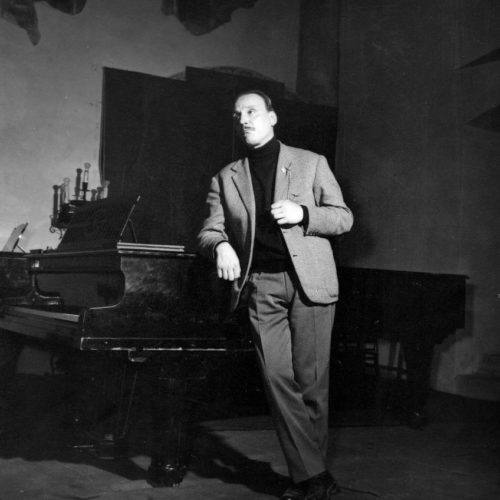
Live recording from Florence, 1952.
Courtesy Mikhail Kaykov

From the Lebrecht Album of the Week:
The missing voice in modern Polish music is female. At the time of her early death, aged 59, in 1969, two contemporaries of Grazyna Bacewicz, Lutoslawski and Penderecki, were world famous and two others, Panufnik and Gorecki, were laying down tracks for the future. Poland punched well above its weight on the musical map, yet Bacewicz, alive or after, was barely heard….
Read on here.
And here.

This is a singularly clever album cover, crossing images of the composer and the soloist.
In a statement congratulating himself on improved audience figures, the Radio 3 controller Alan Davey said this week: ‘I think BBC Radio 3 is important to the kind of society we are. I think having a place where you can take time out from the world, listen to something in depth and get a new perspective is really important. That’s the job that Radio 3 does and I think that’s a job for all time and our listeners seem to think so too judging by the high share and reach this quarter and year.’
That is four thinks in three sentences.
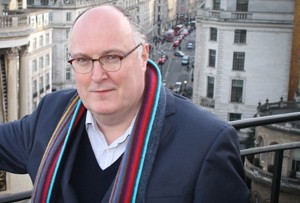
BBC Radio posted a quarterly audience of 2.13 million, its highest in three years.
We think.
The French conductor Ariane Matiakh, who this week gave up her music directorship in Halle in the first half of her first year, will make her debut tonight at the Royal Opera House in London, conducting La Bohème.
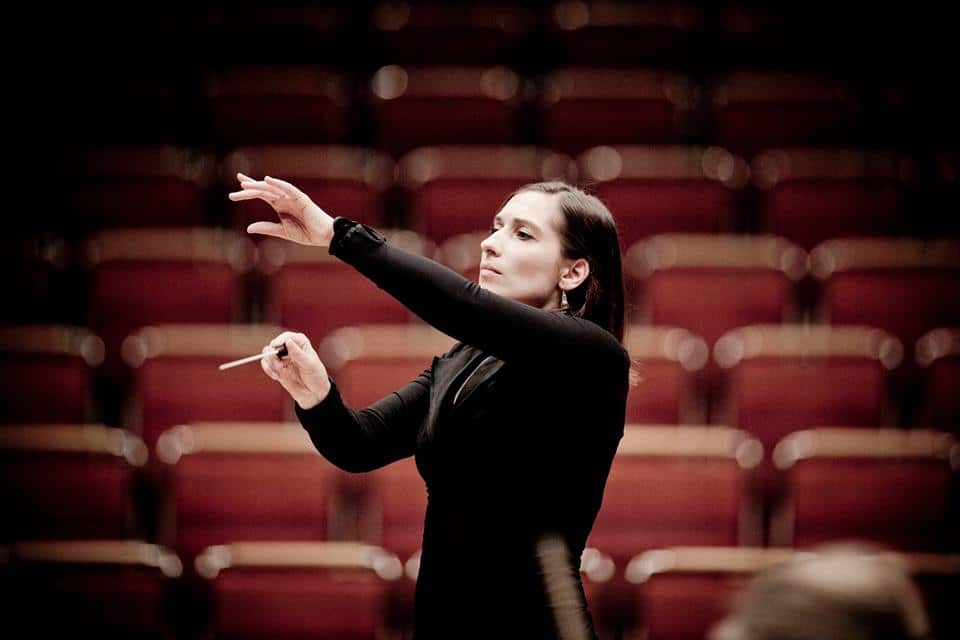
Matiakh has issued a statement saying her exit from Halle was nothing to do with her international commitments.
It’s the centenary of the Handel Festival in Göttingen and they are nothing if not ambitious.
The May 2020 festival will produce all 42 of Handel’s operas in various formats, reductions and arrangements.
Until Göttingen launched its festival in 1920, they claim, hardly any of Handel’s operas had been seen for 200 years.
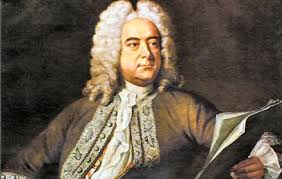
But all 42 in 3 weeks? A bit of a digestion problem.
The Polish-Spanish violinist Christophe Blezien is being detained on the 17th floor of a miltary hospital in Madrid since his return this week from a teaching assignment in Wuhan.
Blezien is concertmaster at the Teatr Wielki – Opera Narodowa in Warsaw.
Read here.
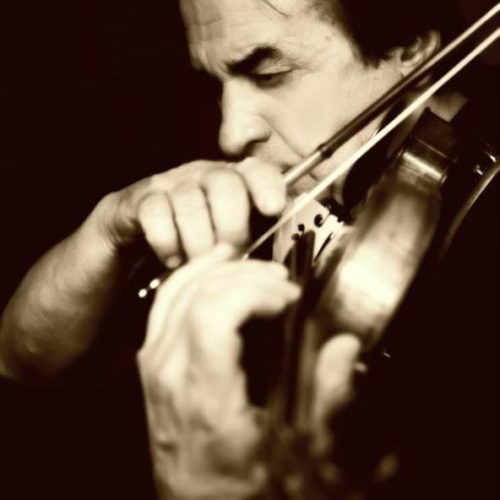
The German celllist Raphaela Gromes has recorded an apparently unknown cello sonata that Richard Strauss wrote when he was 16 years old.
Sony and her PRs are shouting it from a mountaintop, near Garmisch.

They want us to believe that she climbed up there in that frock, carrying the cello.
Now where did they put the piano?
A musician called Rupert Brown has created an app that he claims bring relief to people with tinnitus – especially musicians who suffer from the hearing condition.
His specialist says: ‘Although there is no out and out cure for Tinnitus, T-Minus have tailored their music app to help those finding Tinnitus difficult, making it more manageable.’
Read here.
Anyone tried something like it?

From Jakub Hrusa, chief conductor in Bamberg:
Dnes se v Brně naposledy slavnostně loučíme s drahým dědečkem Stanislavem Hrůšou. V březnu by se dožil 98 let. Nikdy na něho a na jeho krásné lidské vlastnosti nezapomenu. V babičce a celé rodině žije dál. 🖤
Today in Brno we are saying our most loving adieu to my dear granddad Stanislav Hrůša. In March he would have been 98. I will never forget him and his beautiful human virtues. He lives on in my grandma and our whole family.
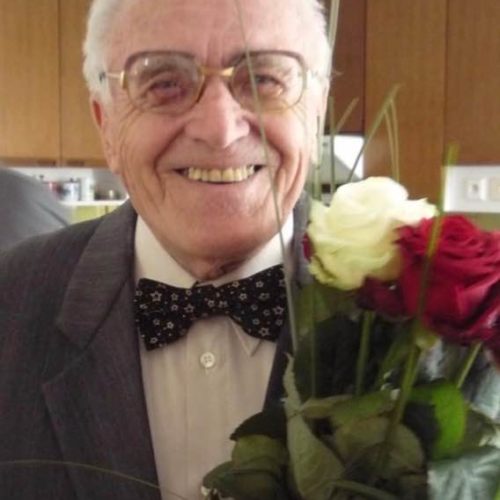
The the Gothenburg Wind Orchestra is to be dissolved at the end of the year after a shortfall in public funding.
It is facing a deficit of around US$2 million.
The orchestra has flourished since 1992.
Press release here.
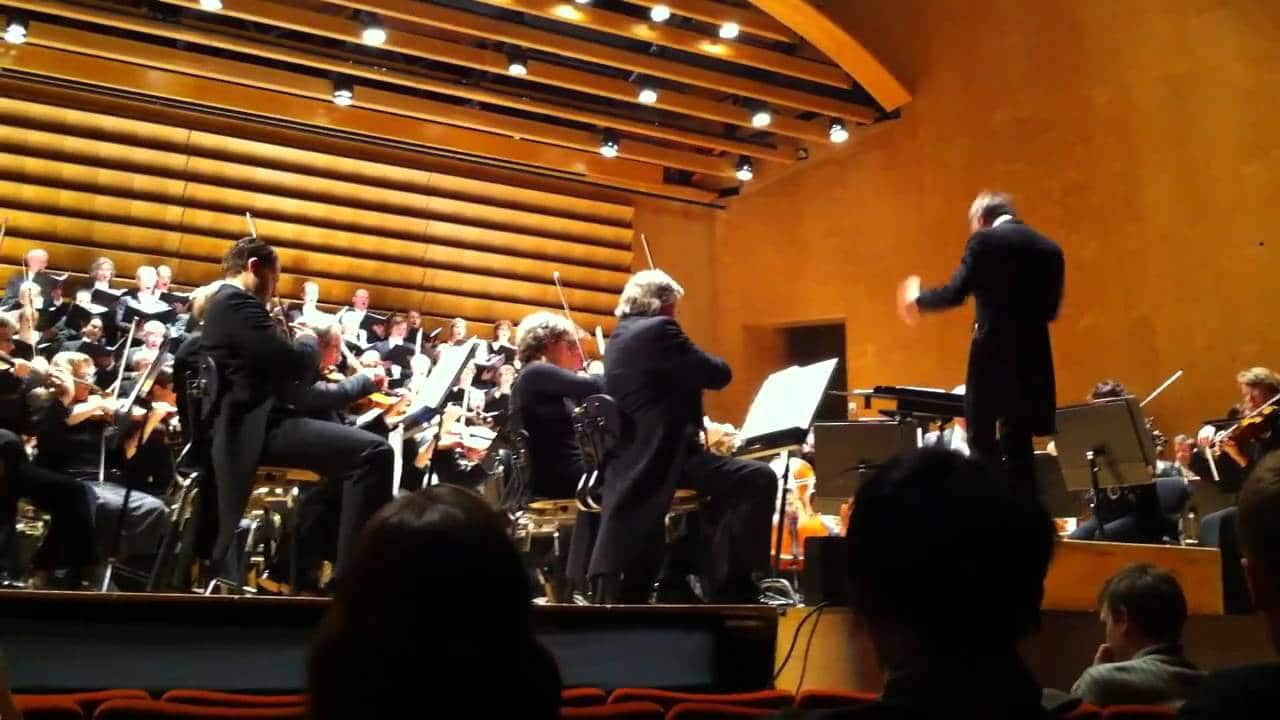
Tributes are flooding in for the late conductor:
Nello Santi was one of the great, last titans, of the slowly vanishing tradition of grand Italian Opera.
I am eternally grateful to him for his wisdom, humor, support, advice, patience, and for every moment of music I was allowed to share with him. R.I.P Maestro straordinario! pic.twitter.com/jdx2AOCAKN— Thomas Hampson (@thomashampson) February 6, 2020
Rest in peace the great Nello Santi.
One of the last “old school” opera conductors.
My condolences to his family and whole opera world.
Thank you maestro!! pic.twitter.com/HB9w9Fwddw— Javier Camarena (@tenorjcamarena) February 6, 2020
Rest in peace the great Nello Santi.
One of the last “old school” opera conductors.
My condolences to his family and whole opera world.
Thank you maestro!! pic.twitter.com/HB9w9Fwddw— Javier Camarena (@tenorjcamarena) February 6, 2020
Piotr Beczala, saddened and shaken: Ich habe grade erfahren dass Grande Maestro Nello Santi von uns gegangen ist … bin sehr traurig und erschüttert. Verdanke Ihm sehr viel , Er hat mich sehr geprägt , unsere Rigoletto und Ballo in Maschera waren Meilensteine in meiner Entwicklung was italienisches Fach betrifft! Bin zutiefst dankbar ! Mein Mitgefühl und Beileid der ganzen Familie ! R.I.P
Janice DiBiase: Maestro Santi was principal conductor of Radio Sinfonieorchester Basel from 1986-1994, one of the two Basel orchestras which merged in 1997 to become Sinfonieorchester Basel. Maestro Santi was never as happy as when he conducted Italian repertory, in which he was world class. Under his direction Basel heard an unforgettable Swiss premiere of Rossini’s opera “Wiliam Tell” among other brilliant concerts. He was known and somewhat dreaded for his tirelessness, since he was an exacting and demanding leader who never let up in his efforts for perfection. The rehearsals were long and draining, but his energy level didn’t show the slightest sign of being diminished. I remember one rehearsal where he spent forty-five minutes hearing each string player tune individually while the rest of the orchestra listened and waited. Before a concert, I once found myself washing my hands in the ladies’ room next to his wife, a beaming, gentle personality and couldn’t resist asking her an indiscreet question. “ Mrs. Santi, is your husband always so tireless?” She reflected a second and smiled in complicity, “ if it’s about music, yes.” Nello Santi was a larger-than-life figure and will remain dear to the memories of his musicians and audiences.
Janice DiBiase
former violist, Sinfonieorchester Basel
The Metropolitan Opera: … mourns the passing of Italian maestro Nello Santi, pictured here after a 1962 performance of Verdi’s Un Ballo in Maschera with Mattiwilda Dobbs, Richard Tucker, Robert Merrill, and Régine Crespin. Over the course of his nearly 40-year Met career, Santi led 400 performances with company, specializing in many of the classic works of the Italian operatic repertory.
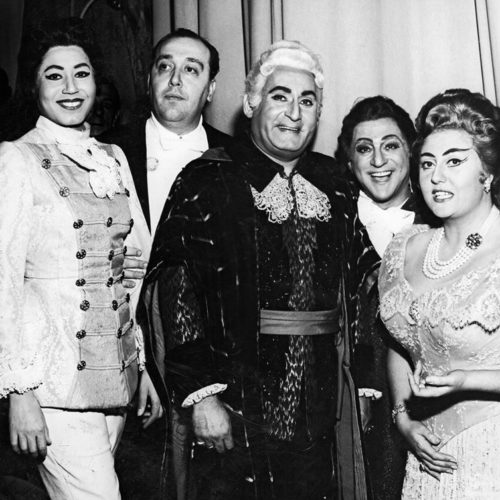
Vienna Opera: Die Wiener Staatsoper trauert um den bedeutenden italienischen Dirigenten Nello Santi, der am 6. Februar 2020 im Alter von 88 Jahren in Zürich verstorben ist. Dem Haus am Ring war er über viele Jahre verbunden: Er debütierte am 13. März 1960 mit Aida am Dirigentenpult der Wiener Staatsoper und leitete hier in weiterer Folge 79 Vorstellungen von 17 unterschiedlichen Werken, darunter die Premierenproduktion von Andréa Chenier in der Inszenierung von Otto Schenk, die heute noch am Spielplan steht, sowie u. a. Cavalleria Rusticana, Pagliacci, Otello, La forza del destino, Madama Butterfly, Rigoletto und Lucia di Lammermoor. Am 3. Oktober 1982 dirigierte er mit einer Vorstellung vom La Bohème zum letzten Mal an der Wiener Staatsoper.
The least appropriate instant response comes from the deputy arts editor of the London Times:
Oh, the King of the Claque! RIP Nello Santi. https://t.co/L9Wy3roLtT
— Neil Fisher (@nfmusic) February 6, 2020
Welcome to the 29th work in the Slipped Disc/Idagio Beethoven Edition
Romances, op 40 and 50 (1798-1803)
The two romances for violin and orchestra that Beethoven slipped out around the turn of the 19th century were, in effect, dry runs, for the violin concerto that would soon outface everything else in its genre. Each around eight minutes long, they feature a hummable main theme, followed by some manageable adumbrations.
Why did Beethoven need to fumble around with these experiments. Probably because he was unsure of the instrument and its capabilities. His own instrument was the piano and, although he had played viola as a teenager in a Bonn orchestra, it left him in awe of the leader of the strings family and, to a degree, uneasy about tackling it.
Not that you would hear that from the ease with which the pieces are played today, usually as sweetmeats in a mixed-bag concert menu. Perhaps the most charming and laidback of these modern accounts is by the Canadian James Ehnes with the Royal Liverpool Philharmonic Orchestra, conducted by Andrew Manze, an occasion in which everyone seems to be smiling at their work. The son of a trumpet professor and a ballerina, Ehnes always seems to have more leaps in his locker than he will ever need to use. Not many modern recordings make you want to rush out, as this one does, to hear the artist in the concert hall. Liza Ferschtman, a volin whisperer if ever there was one, is another I’d want to hear live, just to see if she can get away with such soft playing in a large room.
The vastness of the ex-EMI archives allows us to access the earliest western recording of the first Romance, by an Italian violinist, Gioconda de Vito, in 1948. Opionion divides about De Vito. Rival violinists deprecated her wavery tone and critics accused her of more inaccuracies than she actually committed. Around the time of this recording she married EMI’s classical boss David Bicknell, which brought her to the attention of Wilhelm Furtwängler, who exploited the connection and asked to make recordings with her. In this set, with Alberto Erede conducting, she is at her loveliest and most immaculate. She played an early Stradivarius, on loan from the Italian state.
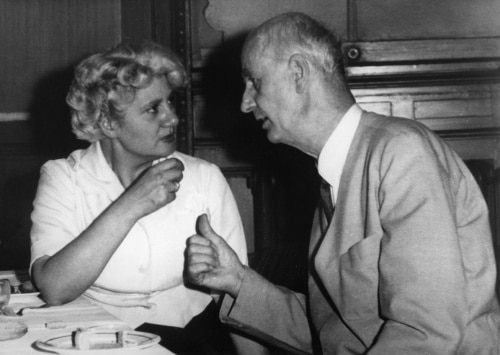
The two Romances give an opportunity to hear the Oistrakhs, father and son, side by side. David Oistrakh, the supreme Soviet-era violinist, was one of those rare interepreters who convinced you at first hearing that a work could not be played any other way but his. He immersed himself in Beethoven and expressed the composer’s ideas with an authority that was as unassuming as it was incontrovertible. He is heard to best effect in a 1961 studio session in London with Eugene Goossens and the Royal Philharmonic Orchestra. Igor Oistrakh inherited some of his father mannerisms, without his serenity. I hear something pedagogic in his playing, as if he’s trying to tramsit a family legacy, but there’s no mistaking the nobility of his style and the security of his tone in this recording with a Moscow college orchestra and Arnold Katz.
You will not want to miss Heifetz with Steinberg (1951), Menuhin with Furtwängler (1953) or Christian Ferras with Leopold Ludwig (1955) – the kind of aristocratic playing we shall never hear again. I’m disappointed to find missing from Idagio the 1975 Nathan Milstein recordings with the Philharmonia and Harry Blech, the very acme of elegance.
In the present century, the Romances are practically owned by Anne-Sophie Mutter who has the knack of turning them into a coffee-morning conversation with orchestra and audience, a very rare gift that I have witnessed in Berlin, and in New York, where she made this quite indispensable recording with Kurt Masur and the Philharmonic. Listen and wonder. She speaks Beethoven for our time.
